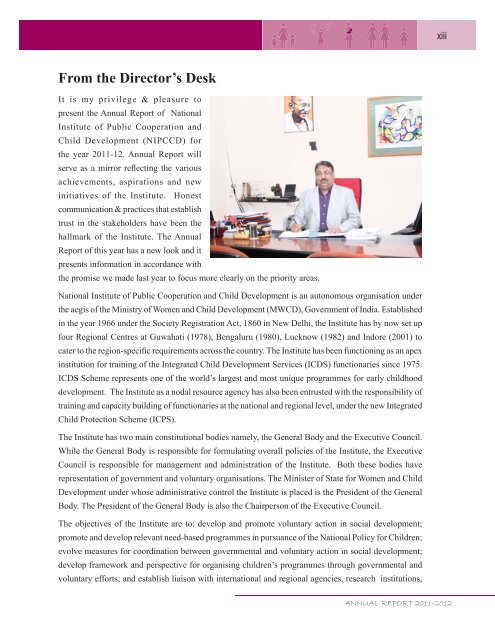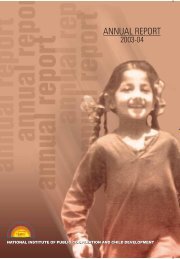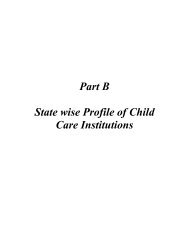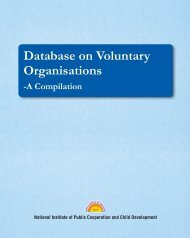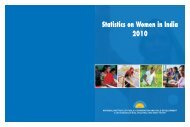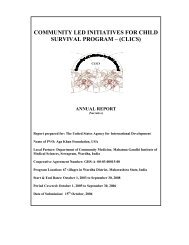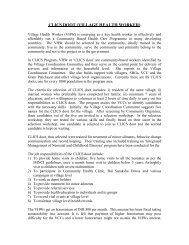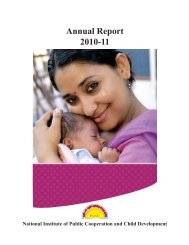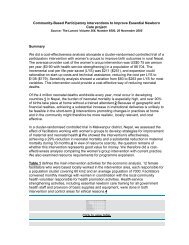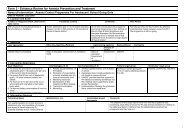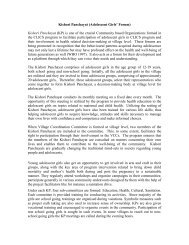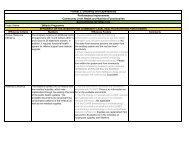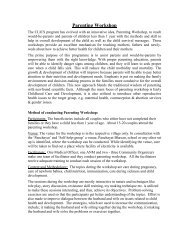From the Director's Desk - Nipccd
From the Director's Desk - Nipccd
From the Director's Desk - Nipccd
You also want an ePaper? Increase the reach of your titles
YUMPU automatically turns print PDFs into web optimized ePapers that Google loves.
<strong>From</strong> <strong>the</strong> Director’s <strong>Desk</strong><br />
It is my privilege & pleasure to<br />
present <strong>the</strong> Annual Report of National<br />
Institute of Public Cooperation and<br />
Child Development (NIPCCD) for<br />
<strong>the</strong> year 2011-12. Annual Report will<br />
serve as a mirror refl ecting <strong>the</strong> various<br />
achievements, aspirations and new<br />
initiatives of <strong>the</strong> Institute. Honest<br />
communication & practices that establish<br />
trust in <strong>the</strong> stakeholders have been <strong>the</strong><br />
hallmark of <strong>the</strong> Institute. The Annual<br />
Report of this year has a new look and it<br />
presents information in accordance with<br />
<strong>the</strong> promise we made last year to focus more clearly on <strong>the</strong> priority areas.<br />
National Institute of Public Cooperation and Child Development is an autonomous organisation under<br />
<strong>the</strong> aegis of <strong>the</strong> Ministry of Women and Child Development (MWCD), Government of India. Established<br />
in <strong>the</strong> year 1966 under <strong>the</strong> Society Registration Act, 1860 in New Delhi, <strong>the</strong> Institute has by now set up<br />
four Regional Centres at Guwahati (1978), Bengaluru (1980), Lucknow (1982) and Indore (2001) to<br />
cater to <strong>the</strong> region-specifi c requirements across <strong>the</strong> country. The Institute has been functioning as an apex<br />
institution for training of <strong>the</strong> Integrated Child Development Services (ICDS) functionaries since 1975.<br />
ICDS Scheme represents one of <strong>the</strong> world’s largest and most unique programmes for early childhood<br />
development. The Institute as a nodal resource agency has also been entrusted with <strong>the</strong> responsibility of<br />
training and capacity building of functionaries at <strong>the</strong> national and regional level, under <strong>the</strong> new Integrated<br />
Child Protection Scheme (ICPS).<br />
The Institute has two main constitutional bodies namely, <strong>the</strong> General Body and <strong>the</strong> Executive Council.<br />
While <strong>the</strong> General Body is responsible for formulating overall policies of <strong>the</strong> Institute, <strong>the</strong> Executive<br />
Council is responsible for management and administration of <strong>the</strong> Institute. Both <strong>the</strong>se bodies have<br />
representation of government and voluntary organisations. The Minister of State for Women and Child<br />
Development under whose administrative control <strong>the</strong> Institute is placed is <strong>the</strong> President of <strong>the</strong> General<br />
Body. The President of <strong>the</strong> General Body is also <strong>the</strong> Chairperson of <strong>the</strong> Executive Council.<br />
The objectives of <strong>the</strong> Institute are to: develop and promote voluntary action in social development;<br />
promote and develop relevant need-based programmes in pursuance of <strong>the</strong> National Policy for Children;<br />
evolve measures for coordination between governmental and voluntary action in social development;<br />
develop framework and perspective for organising children’s programmes through governmental and<br />
voluntary efforts; and establish liaison with international and regional agencies, research institutions,<br />
xiii<br />
ANNUAL REPORT 2011-2012


